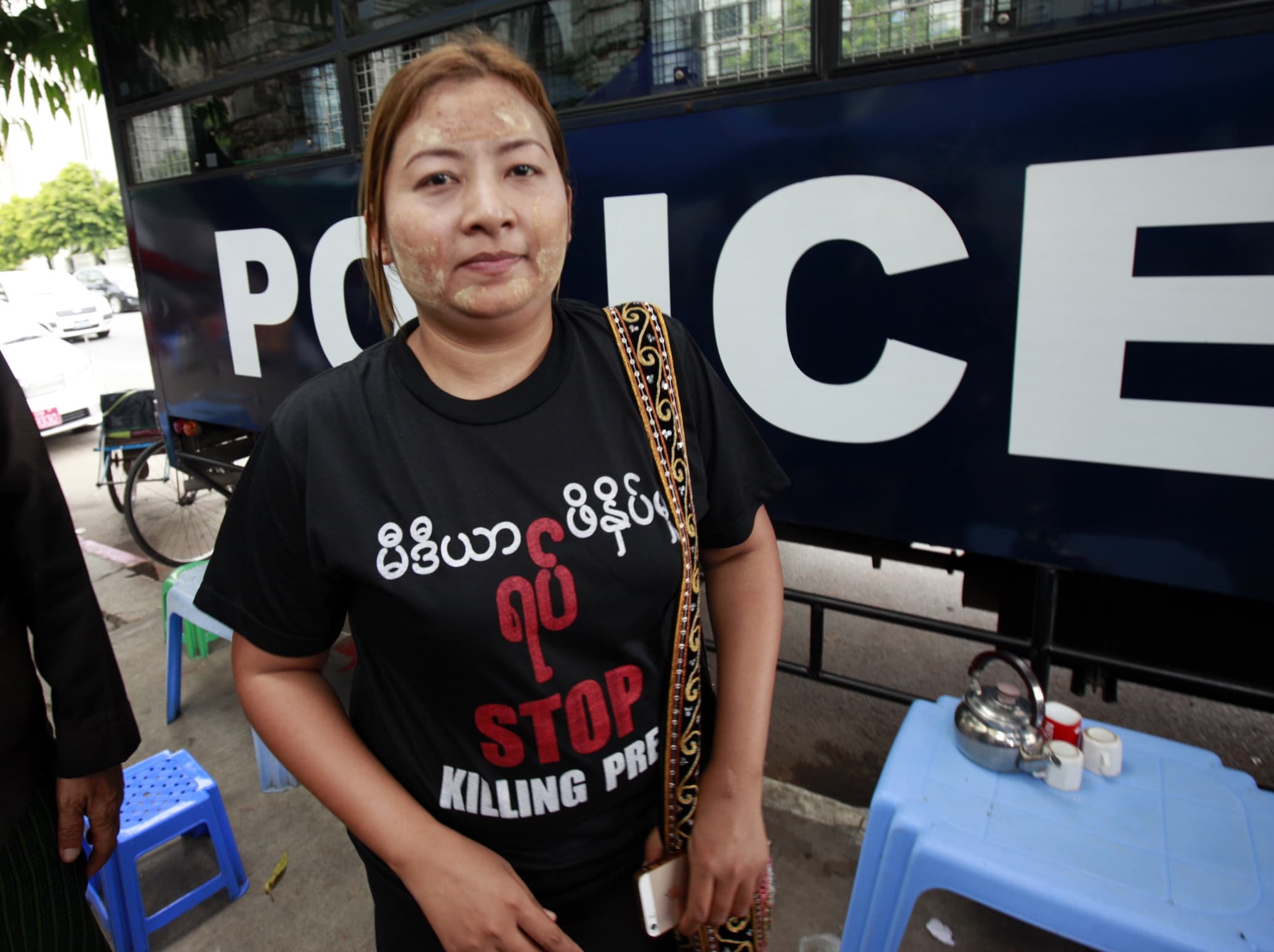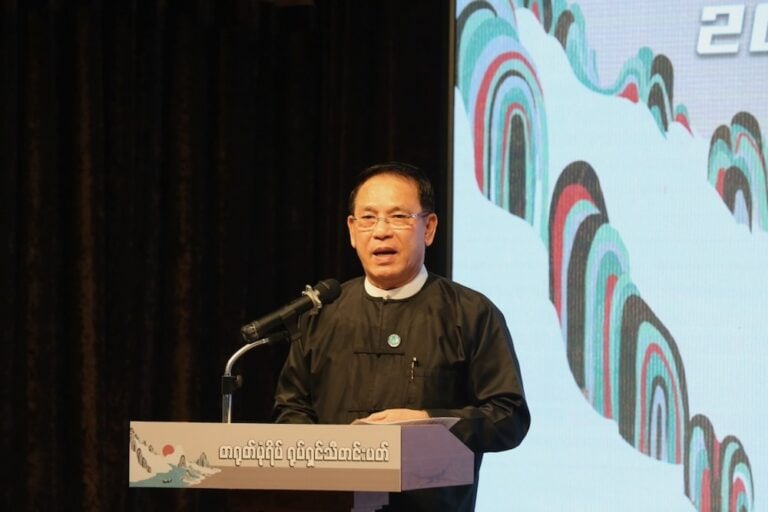Burmese senior reporter Shwe Hmone was fined for unlawful assembly charges filed in July 2015, seven months after an event to mark the first International Day to End Impunity for Crimes against Journalists.
This report was originally published on seapa.org on 18 December 2015.
A Myanmar court on Friday [18 December 2015] fined a female journalist for joining a public prayer for detained media workers late last year.
Shwe Hmone, a senior reporter of Thamagga journal, was fined 10,000 Myanmar Kyats (about 8 USD) for unlawful assembly charges filed in July 2015, seven months after an event to mark the first International Day to End Impunity for Crimes against Journalists on 2 November 2014.
The Kyauktada township court ruled that Shwe Hmone was guilty of violating Article 19 of the Right to Peaceful Assembly and Peaceful Procession Act (PAPPA), and ordered her to pay the fine or serve a 15-day jail sentence.
“The judge has decided she was guilty for holding an event in a place where authorities did not allow. It did not matter whether it is a protest or not,” said Kyee Myint the Myanmar Lawyers Network, who defended Shwe Hmone.
Journalists pay for fine
“I didn’t want to pay the fine as I am innocent. I did nothing wrong,” Shwe Hmone, a member of the Myanmar Journalist Network (MJN), said after the court decision.
However, her colleagues paid the fine for her.
“We collected money from our colleagues, and paid the fine for her because we don’t want to let her pay the fine or serve the jail sentence,” said Naing Min Wai, another member of MJN.
“It’s ridiculous to charge a person six months after the event. It is a very simple signal from the authorities to threaten the media,” Naing Min Wai said.
Violations of article 18 of the PAPPA is punishable by up to three months in prison for violating a specified requirement for protesters to remain within an area police have permitted for the demonstration.
“We wanted to follow the rules”
A leader from activist group Generation Wave and Shwe Hmone applied for permission to hold the event at Sule Pagoda in downtown Yangon.
“Following the Unlawful Assembly law, we applied for permission from the authorities to hold the activity there. But they denied it,” she said.
“They said we can use a place in another township that is not suitable for such a prayer service,” she added.
“So, we decided to hold the event at Sule pagoda, as it was not a protest or a demonstration. It was just a prayer service.”
About 150 journalists and activists participated in a prayer event at Sule pagoda in downtown Yangon in 2 November 2014, the first time that the International Day to End Impunity for Crimes against Journalists was marked in Myanmar as well as across the world.
Charged seven months later
“I was surprised when police informed me about the charge,” Shwe Hmone said. Police filed the unlawful assembly charge to Shwe Hmone on 1 July 2015.
Explaining the delay in bringing charges, Captain Win Tin of Kyauktada police station was quoted in the Myanmar Times as saying, “We were busy at that time. And we were taking time to get her information such as her address and so on. We got hers just recently. So we can inform her now.”
“That’s ridiculous as I am not hiding,” Shwe Hmone said, reacting to the police explanation.
“I went along with some activists from Generation Wave to Kyauktada police station to ask permission for the event. That may be why they charged me,” Shwe Hmone said, although none of the Generation Wave activists were charged.
“The court decision [finding Shwe Hmone guilty] is becoming very normal. They charged journalists and activists under the Unlawful Assembly Law. Although sentenced with a light penalty, this signals that they [authorities] can take action against them at any time,” explained Myint Kyaw, a member of the newly-elected Myanmar News Media Council.
“The Unlawful Assembly Law directly affects freedom of expression. The law is designated to curb freedom of expression, and it also affects journalists and the media industry,” he said.
Freedom of media under threat
Lawsuits and arrests of journalists have been increasing since the much heralded restoration of media freedoms in Myanmar began in late 2012.
The abolition of pre-publication censorship in August 2012 was one of the highlights that marked the end of more than half-a-century of military rule in the country after a quasi-civilian government took power in 2011.
At least 20 journalists have been imprisoned since 2013, including five who were sentenced to 10 years’ imprisonment with hard labour for disclosing state secrets in a news report about an alleged chemical weapons factory in an Army-owned facility.
“Journalists have to be cautious because harassment [and restrictions on] media freedom have increased since 2013,” said lawyer Kyee Myint.
“Media freedom has been under threat again since 2013, and 2014 was the worst year for journalists in Myanmar,” Myint Kyaw said.
[Report by Kyaw Lynn, a 2014 SEAPA Fellow]



